Interview: Digital Footprints of Modern Advertising and Media
May0
Who among us has not computerized our bills, thinking that reducing paper consumption was more Earth-friendly? Or increased accomplishing anything and everything by email that used to be done by snail mail? On a larger scale, media and advertising (and to some degree entertainment) has had the same idea, moving away from traditional print to digital delivery models. At the Sustainable Media Climate Symposium in Manhattan last December, Don Carli spoke about the new and somewhat controversial concept of ‘Tree Washing’ within the advertising and media industries, specifically the notion that modern technology use and methodologies leave a larger carbon footprint than the traditional paper industry:
The video, and idea, caught ScriptPhD.com’s attention in a big way. Mr. Carli, the director of the Institute for Sustainable Communications, has hypothesized extensively about whether digital media is worse for the environment, including a recent white paper about the guilt that this new dilemma has incurred in consumers. Eager to learn more, ScriptPhD.com sat down with Mr. Carli to discuss the technology and environmental challenges presented by modern media and advertising conduits, how technologists and creatives can work in concert with environmental and watchdog organizations to mitigate these challenges as technology continues to evolve in our lives, and why it’s in businesses’ and brands’ best interests to compact carbon footprints. For our complete interview, please click “continue reading.”
Earth Day Guest Article: Plastic Beads and Sugar Water
Apr1
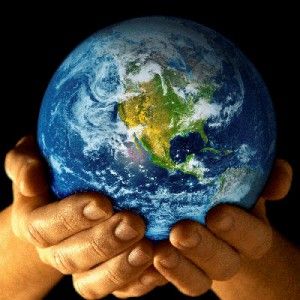
Happy Earth Day, 2010!
Here at ScriptPhD.com, we pride ourselves on being different, and we like thinking outside the mold. So for Earth Day 2010, we wanted to give you an article and a perspective that you wouldn’t get anywhere else. There is no doubt that we were all bombarded today with messages to be greener, to use less, to be more eco-conscious, and to respect our Earth. But what is the underlying effect of advertising that collectively promotes The Green Brand? And has the Green Brand started to overshadow the very evil—environmental devastation—it was meant to fight to begin with? What impact does this have on the future of the Green movement and the advertising agencies and media that are its vocal advocates? These are questions we are interested in answering. So when we recently met Matthew Phillips, a Los Angeles-based writer, social media and branding expert, and the founder of a new urban microliving movement called Threshing, we were delighted to give him center stage for Earth Day to offer his insights. What results is an intelligent, esoteric and thoughtful article entitled “Plastic Beads and Sugar Water,” sure to make you re-evaluate everything you thought you knew about going green. We welcome you to contribute to (and continue) the lively conversation in the comments section.
Selling Science Smartly: Green Advertising with RIESTER
Apr2
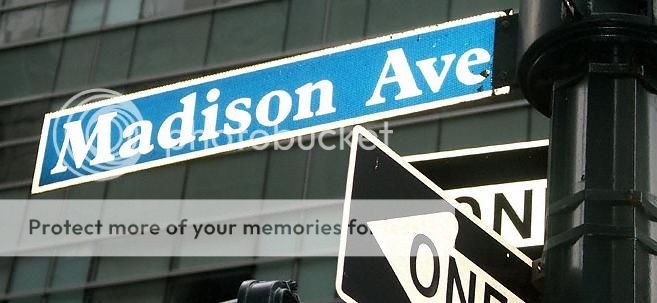
Much of today’s messaging about the environment, green initiatives and ways for the public to make a difference physically and fiscally are centered around media and advertising. To wit—even amid the deepening recession, one market has seemed to defy the economic downturn: green and environmentally-friendly product launches. Sadly, however, a large and growing subset of the eco-conscious creative collective is enveloped in hyperbole and hubris, a term the industry has labeled “greenwashing” that we will discuss in much greater detail in another article. It was natural then, that as part of our Earth Week coverage, ScriptPhD.com undertook green advertising as part of our continuing “Selling Science Smartly” series. Here, we profile a case study of several impressive (and effective) campaigns by the West Coast-based RIESTER, including work on recycling, clean air, and the first fully-integrated municipal sustainability campaign in the US. We also had an opportunity to speak with RIESTER’s executive team, who provided insights into their creative strategy, why green advertising is more challenging than ever before, the crucial importance that interactive played in their success, and why every agency should be blogging more.
Earth Week INTERVIEW: ‘Tapped’ Director/Producer Stephanie Soechtig
Apr8
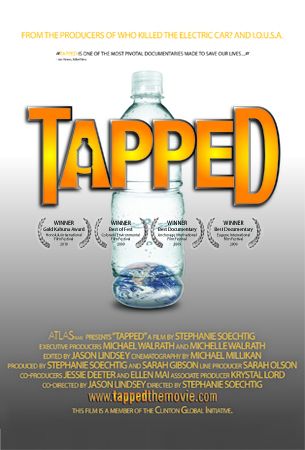
Tapped poster and logos ©AtlasFilms, all rights reserved.
Back in March, we reviewed the stirring documentary Tapped, which chronicles the harmful environmental and health impact of our bottled water addiction. Since our World Water Day 2010 coverage, the filmmakers have embarked on an ambitious “Get Off The Bottle” 30 city, 30 day bus tour, set to conclude on April 22, Earth Day. Tapped director and producer Stephanie Soechtig took time out from the tour to talk to ScriptPhD.com about the tour, their efforts to educate people about bottled water, how the film’s release has impacted her, her wishes for changes in the advertising and marketing of bottled water, and things we can all do to make that happen. Day 2 of our Earth Week coverage continues on the theme of how valuable water is to our environment. For our interview with Stephanie, please click “continue reading.”
Earth Week REVIEW: DisneyNature’s Oceans
Apr0

Oceans film poster and associated images ©DisneyNature Films, all rights reserved.
Happy Earth Week 2010, everyone! Here at ScriptPhD.com, we have devoted a number of articles to environment, sustainability and eco-awareness as part of our continuing “It’s Not Easy Being Green” series. This year, in celebration of the 40th anniversary of Earth Day, we are devoting the entire week to articles, interviews and profiles of companies, individuals and content that raises awareness of sustainability efforts and new ideas for the green science revolution. Because water lies at the heart of most modern environmental crises, we kick off Earth Week with CaptainPlanet’s review of the stellar new DisneyNature documentary Oceans, a truly spectacular oeuvre that celebrates the majesty of our most important and delicate resource. We also include a number of practical, easy things you can do right now to make a difference globally by acting locally. For our Oceans review and to find out what you can do to help protect our Earth’s water supply, please click the “continue reading” cut.
INTERVIEW: Breaking Bad Creator/Executive Producer Vince Gilligan
Apr1
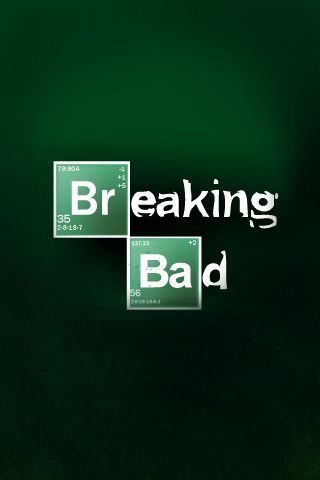
Breaking Bad images and logo ©AMC Television and Sony Pictures, all rights reserved.
Last year around this time, ScriptPhD.com posted Breaking Bad, Chemistry Good, an in-depth article about AMC’s breakout hit Breaking Bad, and its stunningly accurate science content. Walter White, the show’s anti-hero, is a cancer-stricken high school chemistry teacher who starts cooking and dealing methamphetamine for financial security. In our article, we highlighted several clever uses of chemistry throughout the show’s run that not only integrated brilliantly into the plot but had realistic real-world applications as well. What a difference a year makes! Last week, Editor Jovana Grbić sat down with Breaking Bad‘s delightful Creator and Executive Producer Vince Gilligan to talk about the show’s origins, the science, and some behind-the-scenes secrets that will surprise even dedicated fans. We hope you enjoy reading our interview as much as we enjoyed chatting with him. The secrets of Breaking Bad, under the “continued reading” cut.
ScriptPhD Roundtable: Naturally Obsessed—The Making of a Scientist
Apr0
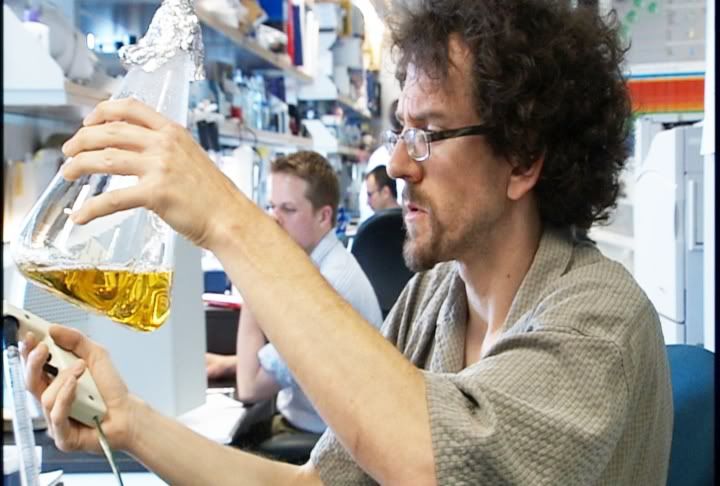
Graduate student Rob Townley mixes solution in a beaker in a scene from documentary "Naturally Obsessed: The Making of a Scientist." Film images ©ParnassusWorks Films, all rights reserved.
Society’s unequivocal fascination with science and scientists, reflected by a growing presence as staples of film, television, and popular culture, has only been magnified by the enigmatic (and seemingly impenetrable) aura in which they are enveloped. Their studies decidedly abstruse, their coded language unintelligible, their habits quirky and eccentric, the world of the scientist has been an audiovisual shroud of mystery—until now. In perhaps the most authentic, unfiltered, extemporaneous portrayal of scientists in their environment ever recorded, new documentary Naturally Obsessed: The Making of a Scientist welcomes the lay audience into the laboratory as silent observers. No reservations, no restrictions, no preconceptions. The result is an emotionally stunning masterpiece that connects us to scientists as people, reaches out across professional divides, and places PhD students, the backbone of the modern scientific laboratory, under the microscope for the first time. ScriptPhD.com recently screened the movie with a group of UCLA PhD biology students. Under the “continue reading” cut is our review, along with an honest roundtable discussion that included reaction to the movie, its parallel to their lives, and the training of modern scientists.
It’s Not Easy Being Green: ‘Tapped’ Out on Bottled Water (World Water Day)
Mar6
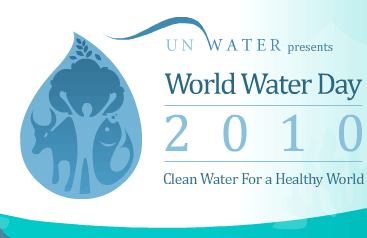
“Whiskey is for sipping, but water’s for fighting.” —Mark Twain
Today, March 22, 2010, is World Water Day, an initiative formed at the 1992 United Nations Conference on Environment and Development. As we head into Earth Day next month, no environmental issue carries more sociopolitical, economic and health ramifications than a clean and abundant supply of water. Some of the highest global morbidity and mortality rates are directly related to lack of access to clean water—both in contracting communicable diseases as well as agricultural impact that aggravates famine. At the heart of this discussion is a frenzied (and growing) thirst for bottled water; Americans alone bought more than 29 billion bottles in 2007. If you have long suspected that bottled water is not good for the environment, but only had a hazy notion about the specific consequences of the bottled water industry, Tapped, an Atlas Films documentary about to be released on DVD, will knock your socks off. The film expertly chronicles the insidious practices of bottled water companies and the dire consequences it has on our collective health, communities, environment, economy and policy in ways you never would have imagined. Our special World Water Day post under the “continue reading” cut.
Science and Society: A Policy Analysis
Mar0
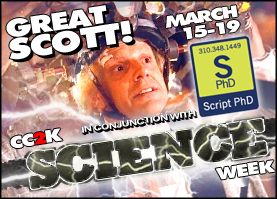
“The fewer the facts, the stronger the opinion.” —Arnold H. Glasgow, American humorist
In today’s modern, fast-moving world, large telecommunication and media corporations are playing an ever increasing role in shaping the collective consciousness of society. This development might lead us to ponder what role, if any, traditional pillars of learning such as law, science, medicine, literature and art have to contribute to society. How does society absorb these contributions during the ongoing media (and social media) blitz that has transformed how we obtain, process and share information. More importantly, what influence do these contributions have upon society, and what influence does society reciprocate upon these institutions? For our last (and best) post of Science Week, ScriptPhD.com examines the relationship between science and society, and extrapolates social policy and pop culture lessons that could shape and transform that relationship in the future. Please click “continue reading” for more.
Guest Article: A Pop-Culture Science Lesson
Mar0

All right class, settle down, settle down. My name is Mr. Ross, but you may call me BR. Welcome to Pop-Culture Science 101. I know what many of you are thinking: “Science is boring; I just don’t get it.” I can understand those sentiments. But that’s only because of the ways you’ve been taught in the past. Today is going to be different. On this, the third day of the Science Week collaboration between ScriptPhD and CC2K, we decided to have a bit of silly fun and cover a couple of traditionally esoteric science topics from an angle I doubt any of you have considered before—pop culture icons. So get out your notebooks and pens, today’s lesson begins now! Please click “continue reading” for more.

















